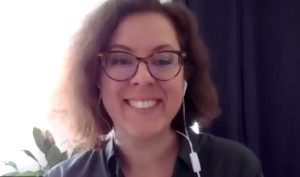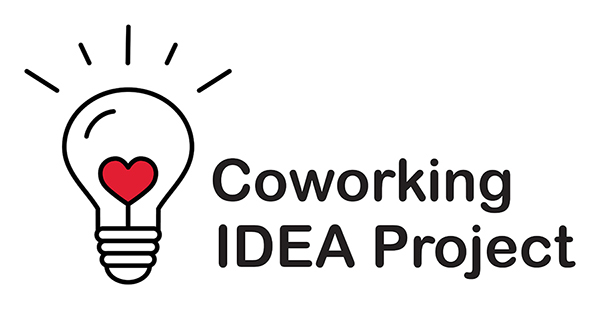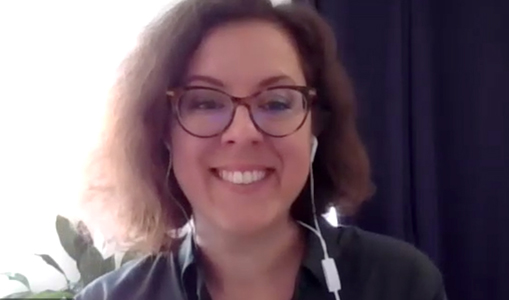Open the Doors to Accessibility in your Coworking Space
May’s IDEA Challenge is facilitated by Ivanne Poussier and David O’Coimin.
The IDEA Project is a global initiative aimed at developing Inclusivity, Diversity, Equity and Accessibility (IDEA) within coworking and collaborative spaces. Each month, we will host a challenge that assists you in broadening your understanding of IDEA, whilst giving clear actions for you to take to develop IDEA within your space.
Challenge #4 – Open the Doors to Accessibility in your Coworking Space
🇫🇷 Ouvrez vos portes à l’accessibilité dans votre coworking ! 🇫🇷
The coworking industry is one of the most active industries in advocating for an inclusive and diverse environment. Driving a strong campaign against any form of discrimination, the coworking community is also pushing to provide accessibility to everyone. An inclusive and accessible workplace which supports everyone to thrive, delivers a valuable component of the coworking spirit.
A key element of an inclusive working environment is that it should feel safe. Safe in the practical sense, and also in regard to one’s sense of self – being open to be oneself, feeling supported and that the community regards you as a valued peer, in all your wonderful idiosyncratic nuance and personal requirements.
Accessibility plays a key role in this. Done badly, it forms barriers, literal and psychological, to inclusivity. Poor accessibility is often invisible to those seemingly unaffected by it, but it can be the making or breaking of a component which makes Coworking what it is: community.
To achieve the community we crave, to be advocates for inclusivity and diversity, to shape the new way of working and set the tone for the change we want to see in the world, addressing accessibility is one of the strongest, most enduring and meaningful exercises we can undertake.
The word Accessibility itself means the quality of being able to be reached or enter. But what do we actually mean when we talk about accessibility?
Accessibility encompasses many concerns and should not be limited to what government regulations require, and its visible aspect: accessibility to and around a venue, visual and hearing accessibility, cognitive accessibility and neurodiversity. And what about ageing members, who are more likely to face some forms of disabilities or impairments over time?
This challenge is a first attempt to frame an ongoing process to reflect and ignite a discussion empowering coworking leaders and members to build accessible communities, in a sound, meaningful and sustainable way.
We’ve broken it down into three segments as a means of opening up the discussion.
- Physical Accessibility
- Accessing Services
- Empowering of others
1. Physical accessibility
This looks at the physical aspects of the experience, from arriving at a space through all aspects of its use. This section can include, by way of example: signage, illumination, colour contrast and flooring. It could take into consideration permanent, temporary and circumstantial needs, for example wheelchair use or ease of use with a child carriage. Think about an amputee, someone with a broken arm or a person carrying a child, all of whom have related needs in the moment.
2. Accessing Services
Evaluating the accessibility of information and communication relating to the service being provided. This can include things such as whether web accessibility standards are being adhered to; if publications are available in accessible formats; whether forms can be filled in through accessible software; access to sign-language services; disability education for staff; whether Guide Dogs are allowed, if reasonable adjustment of work space is committed to.
At this point, we would like to highlight neurodiversity as a valuable opportunity of designing for extreme requirements in order to unlock the possible. Consider the open workspace. The one-size-fits-all approach can create significant obstacles for neurodivergent individuals (ADHD, Dyslexia, Autism, and other neurological states), introverts and simply for tasks which require deep work and focus. This counts as much for how your place in the physical space meets your needs and communicates your availability, as it does for the culture of openness, guidance and cues which can be used to communicate our personal state of mind without having to explain.
3. Empowering of others
How do you allow members to share their needs (and potential concerns) along the way and shape a collective approach to improving accessibility as an ongoing horizontal process? How do we build an atmosphere of willingness, of care and support which can start with the smallest self-contained act of reporting a concern and grow to a self-evolving ecosystem?
How to approach the challenge for the next 30 days?
Design thinking here provides a structured and yet flexible approach , through three steps: discovery, analysis and actions. We provide this information as an enabling tool to help in the process of implementing the challenge in an empowering way:
Discovery
In your user journey map, the step of discovery allows you to identify and understand the needs of your users. It is part of the onboarding process and the feedback process. What do you do (and when) to let needs emerge ?
Analysis
The step of analysis refers to the search for solutions with the contribution of peers, experts and citizen experts. What resources can you leverage ? experts / citizen experts, local association of disabled people, …
Action
The step of actions consists in prototyping and implementing solutions (with a feedback loop of learning and improvement). Take for example, updating your signage or your code of conduct (see the April IDEA Challenge) communicating accordingly to manage change : let your community know about the progress made (and the challenges remaining) also ensure your digital frontstore conveys the right message with an accessible website (readable, color blindness, videos with caption, etc.) + images with alt text in social media (see the February IDEA Challenge), adjusting over time.
Summing Up
In this challenge we hope to create a catalyst for you to start a process and open a door to improve your coworking experience, according to your own priorities, whether you sit in a coworking organisation, or as a user of coworking.
It can focus on a personal experience, be based around the current community or lean into an aspiration to open the community up to new members.
Finally, we acknowledge we come from a place of privilege, as temporarily abled bodies. However we are committed to discussing and learning on the way, and would like to express our gratitude to all the experts and citizen experts we have met and will meet in the future.
In particular, we would like to mention the contribution of: Tash Thomas (European Coworking Assembly), Elena Giroli (Creative Works, London), Nadine Obermeier & Roi Tal (Motion Labs, Berlin) and Ashley Proctor (Creative Blueprint, Canada).
There are many different ways to address accessibility, and here are a few resources and examples you can use:
Links to Resources
5 Tips For A More Inclusive Office
Designing For Neurodiversity And Inclusion
Global Accessibility Awareness Day, May 20 2021
We’ve prepared a CHECKLIST / 🇫🇷 CHECKLIST for you to start your conversation around Accessibility. This tool is meant to be a starting point for an internal overview, and to launch a meaningful conversation with your members and peers.
We have listed some items as starting points for conversations. This should not be seen as a box ticking exercise, rather an opportunity to ask questions, report challenges, investigate issues and opportunities together with your community and build momentum toward improvement.
Don’t forget to register below for the May IDEA Conversation – we’d love to hear how you did with this month’s challenge.
All are welcome <3
Thank you to Nook, our May IDEA Challenge Sponsor.
Designed to help all types of minds to settle, focus and recharge, Nook is a family of Pods, Booths and Shelters, built with coworking in its DNA. Highly flexible, modular and sustainable, Nook helps to improve inclusivity and agility while offering a unique sponsorship asset to coworking environments.
Click THIS LINK to find out more, and click HERE to get in touch with Nook.
May 26th 2021
9:00 AM Pacific | 12:00 PM Eastern
5:00 PM UK | 6:00 PM CET

Ivanne Poussier
CEO & Co-Founder of Ada Coworking
Member of European Coworking Assembly

